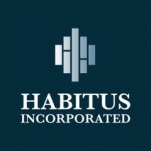

Habitus Incorporated

Massachusetts, United States
September 2016
Other education
Service with Minor Environmental Footprint
United States
Habitus Incorporated provides custom negotiation, communication and conflict management training, targeted coaching, and direct intervention via facilitation or mediation services for those seeking to achieve greater impact, profitability, fluency in interpersonal communication, and organizational efficiency. The Habitus team includes conflict management consultants, highly skilled trainers, coaches and mediators who have worked all over the world with clients ranging from rural farming cooperatives to Ivy League Universities to executives at multinational corporations. The Habitus methodology is to coach clients not just in how to negotiate and resolve difference more effectively but in how to make this new way of operating a part of how they do business every day. Their approach combines cutting edge research in the fields of behavioral economics, social psychology, and neuroscience to ensure that clients incorporate their new skills as habits that they can continue to employ successfully long after engagement ends.
Overall B Impact Score
Governance 20.9
Governance evaluates a company's overall mission, engagement around its social/environmental impact, ethics, and transparency. This section also evaluates the ability of a company to protect their mission and formally consider stakeholders in decision making through their corporate structure (e.g. benefit corporation) or corporate governing documents.
What is this? A company with an Impact Business Model is intentionally designed to create a specific positive outcome for one of its stakeholders - such as workers, community, environment, or customers.
Workers 24.2
Workers evaluates a company’s contributions to its employees’ financial security, health & safety, wellness, career development, and engagement & satisfaction. In addition, this section recognizes business models designed to benefit workers, such as companies that are at least 40% owned by non-executive employees and those that have workforce development programs to support individuals with barriers to employment.
Community 26.4
Community evaluates a company’s engagement with and impact on the communities in which it operates, hires from, and sources from. Topics include diversity, equity & inclusion, economic impact, civic engagement, charitable giving, and supply chain management. In addition, this section recognizes business models that are designed to address specific community-oriented problems, such as poverty alleviation through fair trade sourcing or distribution via microenterprises, producer cooperative models, locally focused economic development, and formal charitable giving commitments.
Environment 7.7
Environment evaluates a company’s overall environmental management practices as well as its impact on the air, climate, water, land, and biodiversity. This includes the direct impact of a company’s operations and, when applicable its supply chain and distribution channels. This section also recognizes companies with environmentally innovative production processes and those that sell products or services that have a positive environmental impact. Some examples might include products and services that create renewable energy, reduce consumption or waste, conserve land or wildlife, provide less toxic alternatives to the market, or educate people about environmental problems.
Customers 11.0
Customers evaluates a company’s stewardship of its customers through the quality of its products and services, ethical marketing, data privacy and security, and feedback channels. In addition, this section recognizes products or services that are designed to address a particular social problem for or through its customers, such as health or educational products, arts & media products, serving underserved customers/clients, and services that improve the social impact of other businesses or organizations.
What is this? A company with an Impact Business Model is intentionally designed to create a specific positive outcome for one of its stakeholders - such as workers, community, environment, or customers.